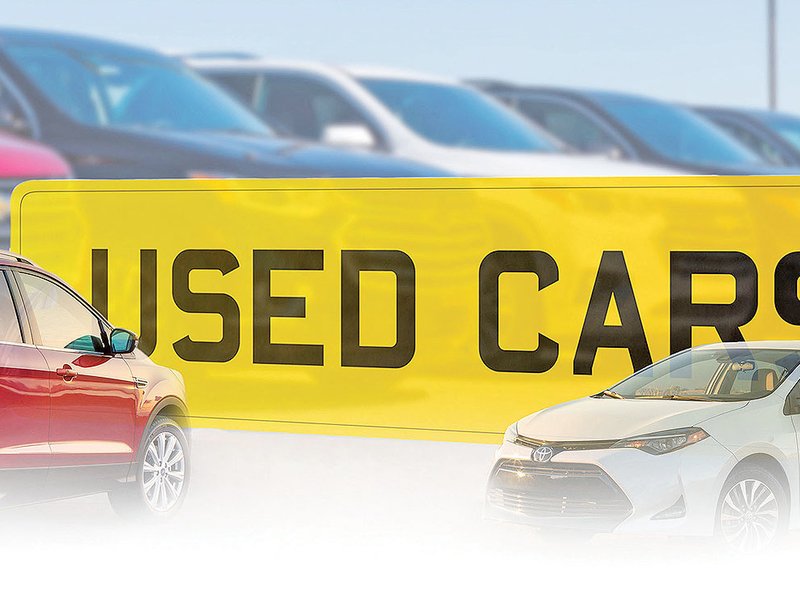
Amid economic uncertainty from COVID-19, American consumers are more hesitant to buy or lease a vehicle since the outbreak began. Used-vehicle consideration remains down compared with pre-pandemic levels, but it is stabilizing, while new-vehicle intent is decreasing, according to a study by McKinsey & Co.
The consulting firm’s COVID-19 Auto & Mobility Consumer Insights study, conducted in seven global markets including theU.S., surveyed approximately 1,200 consumers in the U.S. four times in May through July, of which approximately 400 respondents had intent to purchase or lease a vehicle. It asked them:
1. Before COVID-19, whether they were “not likely, likely or very likely” to buy/lease a new or used vehicle in the next 12 months.
2. Given the current COVID-19 situation, whether they were “not likely, likely or very likely” to buy/lease a new or used vehicle in the next 12 months.
In the latest survey, conducted July 15-17, 70 percent of the U.S. consumers who had an intent to purchase said that they would buy a new vehicle in the next 12 months (likely 25 percent; very likely 45 percent). It was the lowest percentage among the markets surveyed: United Kingdom (82 percent), Germany (91 percent), France (100 percent), Italy (79 percent), China (91 percent) and Japan (90 percent).
The percentage of U.S. consumers who had intent to buy a used vehicle in the next 12 months was higher, at 78 percent. It was higher than the U.K. (71 percent) but lower than the other five nations.
Between the June and July surveys, new-vehicle purchase intent declined 4 percent while used-vehicle intent rose 2 percent.
“The used-car purchase intent is slowly recovering, or stabilizing, on a slightly higher level than the new-car purchase,” said Hans-Werner Kaas, senior partner, automotive practice at McKinsey’s Detroit office. “I think there is a higher degree of uncertainty behind it.”
Kaas said a vehicle’s utility function, whether it be used for running errands, grocery shopping or driving to and from work, has not changed throughout the pandemic.
“But I think what is changing now is there is economic uncertainty out there and public health uncertainty,” he said. “The consumer does weigh [that] when he makes a purchase and in which price level he makes the purchase.”
Kaas pointed to the pending discussions in Washington regarding the potential for another stimulus package as well as federal unemployment benefits as reasons for higher uncertainty among consumers.
Roughly one-third of U.S. consumers plan to spend less money on their next vehicle purchase compared with what they would have spent before the pandemic, according to McKinsey, and that has remained stable throughout the four surveys.
That potentially bodes well for used-vehicle sales, given the typical lower selling prices compared with new vehicles.
“The economic uncertainty drives more financial affordability considerations,” Kaas said.
New data on pricing
However, new data from Edmunds released on Wednesday says that the average listing price for used vehicles in the U.S. rose last month.
The average listing price for a used vehicle, between the 2004 and 2020 model years, was $21,558 in July, according to Edmunds. That’s an increase of $708 compared with June’s average listing price, Edmunds said.
“We’re seeing evidence of more typical new-car shoppers gravitating toward the used car market than usual during the pandemic due to a combination of factors: Consumers are being more financially responsible, interest rates and CPO [certified pre-owned] offers have been extremely favorable and inventory has been severely limited on the new side,” said Ivan Drury, Edmunds’ senior manager of insights, in a statement.
For consumers looking to spend less on a vehicle by purchasing a used vehicle, they will potentially have more avenues to do so in the future.
Expansion plans
In addition to the rise of online used-vehicle retailers such as Carvana, Vroom and Shift, some of the largest dealership groups in the U.S. have released expansion plans tied to used vehicles.
AutoNation Inc., the nation’s largest new-vehicle retailer, said it plans to spend as much as $220 million to add 20 or more AutoNation USA used-only stores to its current five sites over the next three years, while Sonic Automotive Inc. plans to open at least three more standalone used-only EchoPark stores before year end and an additional four to six in 2021.
Last week, IHS Markit said the average age of vehicles in the U.S. this year rose to 11.9 years, up from 11.8 in 2019.
New-vehicle sales were already decreasing before the pandemic, representing 6.1 percent of vehicles in operation in 2019 from the record-setting 6.7 percent in 2016. The report said the coronavirus pandemic will accelerate that trend so that U.S. new-vehicle sales will make up 5 percent or less of all vehicles on the road in 2020.
“I think you just need to be cognizant of the fact that there is a group of customers out there who might even prefer a used car,” Kaas said.